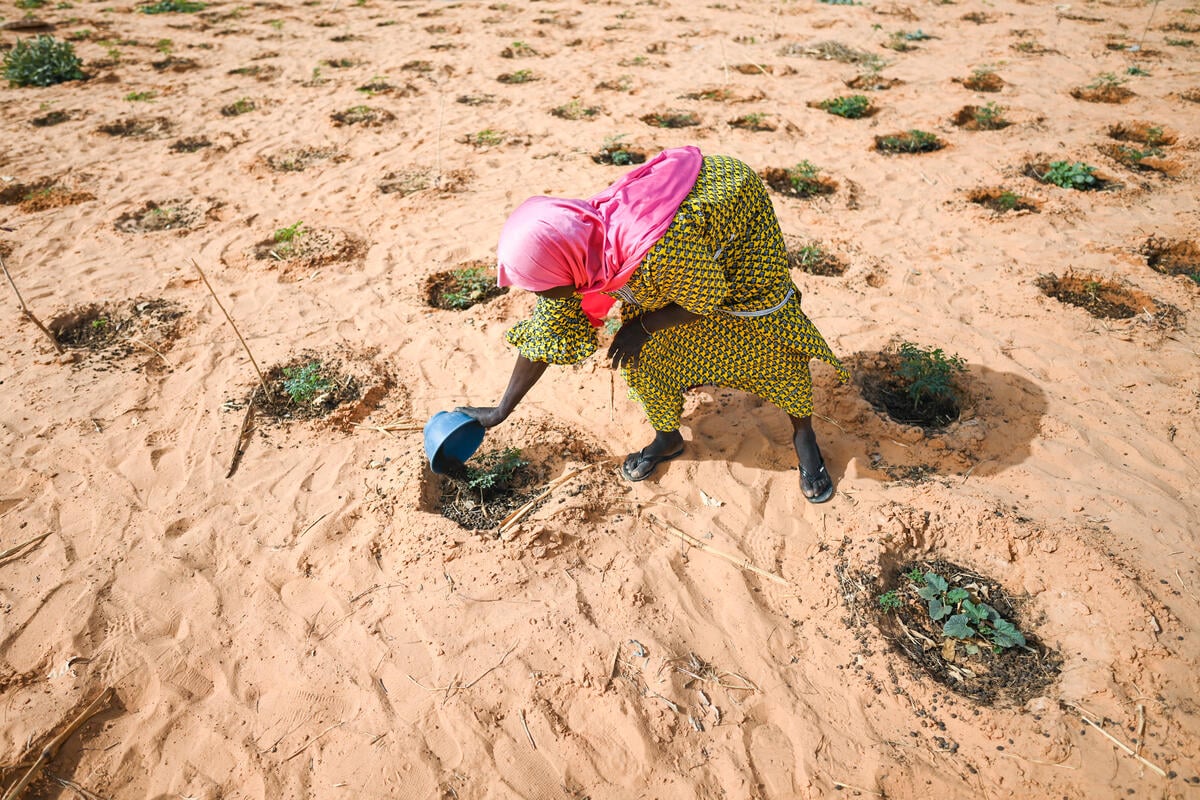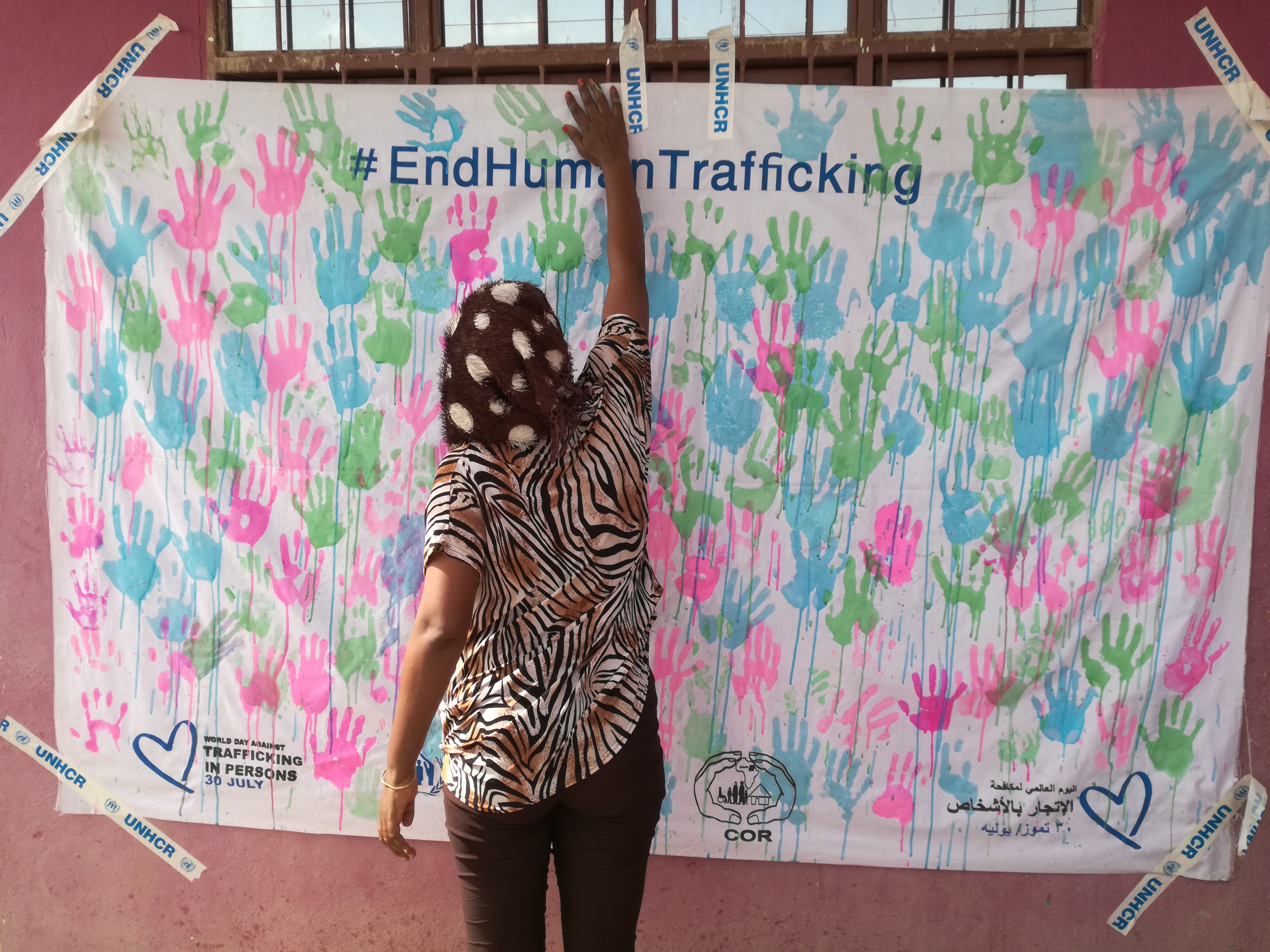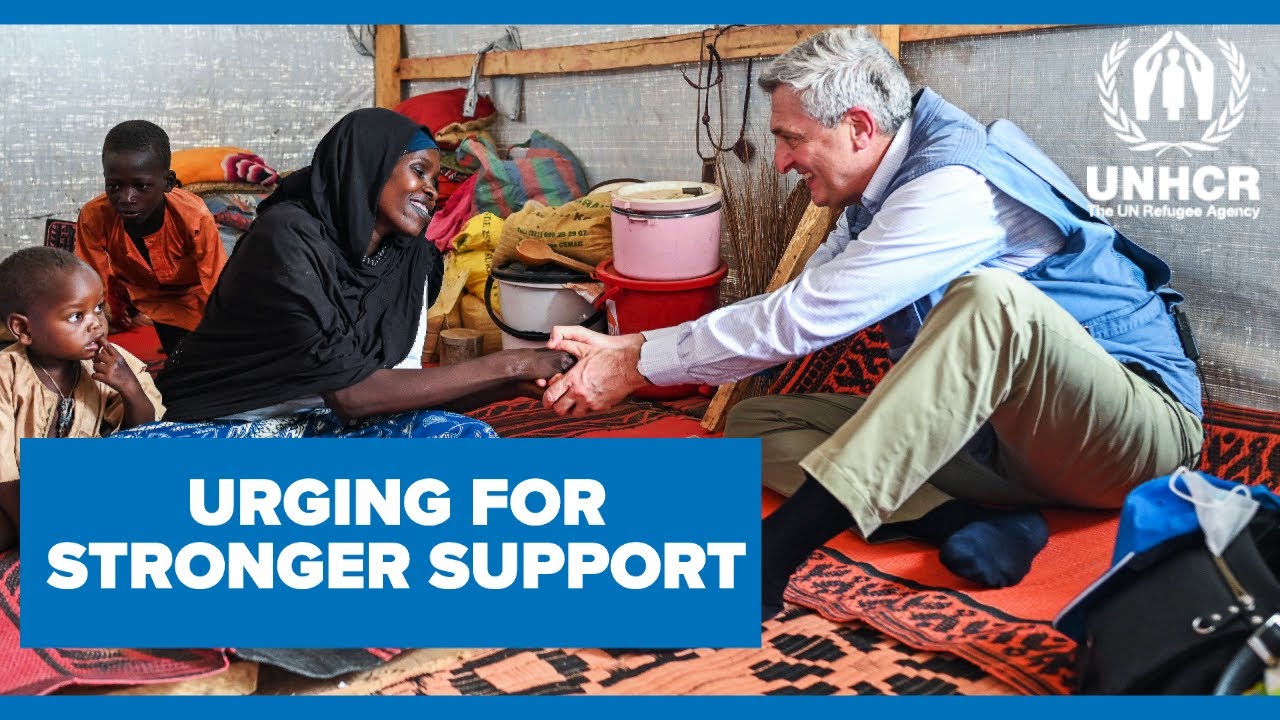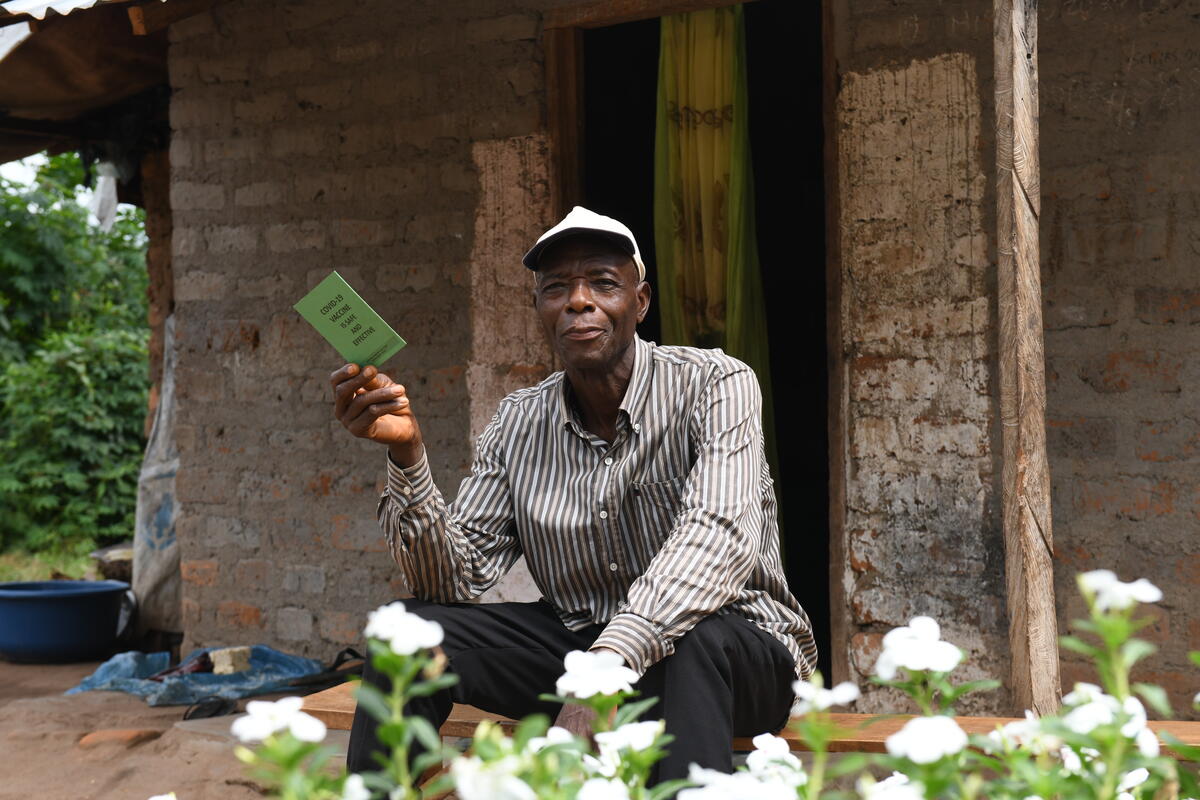New influx of Nigeria refugees into Cameroon, relocation operation being launched
New influx of Nigeria refugees into Cameroon, relocation operation being launched
Cameroon's Far North region saw a new influx of refugees over the weekend following clashes in northeast Nigeria between regional military forces and insurgent. The Cameroonian authorities tell us that some 16,000 Nigerian refugees entered the country. They were reportedly caught amid ongoing violence in villages along the border. The authorities say more refugees continue to cross into these extremely volatile border zones, mostly in the remote border areas of Makaria, Logone Birni, and Fotokol - which lie just south of Lake Chad and have come under repeated attacks by Nigerian insurgents in recent weeks.
We are working with Cameroon to relocate refugees as quickly as possible away from areas of active conflict to a transit site at Kousseri, which lies 90 kilometres from the border and 370 kilometres north of Minawao where there is an established refugee camp. Because of conflict between military forces and insurgents happening on Cameroonian territory, we do not have access to border areas where refugees have arrived. Together with humanitarian partners, including the World Food Programme, International Medical Corps, IEDA Relief and Public Concerm, we are ready to conduct screening at the transit site and to provide emergency assistance in health, nutrition, water, and food for new arrivals.
Relocation convoys from the border to Kousseri will begin tomorrow (4 March). Following screening procedures, UNHCR will then organize daily transfers of 2,000 refugees to Minawao camp where urgent shelter and sanitation construction is already underway. At Minawao, UNHCR will also be providing basic relief aid, such as blankets, kitchen sets and soap. The camp currently hosts 32,621 Nigerian refugees.
The Government of Cameroon continues to provide critical escorts for humanitarian and relocation convoys to ensure the physical protection of refugees and humanitarian actors. Because of the evolving security situation in the region and the prospect of more refugee arrivals, we are discussing the setting up of a second refugee camp, further away from the insecure border. Given the scarcity of water in the area around Minawao, we are looking to secure a second camp location that will provide adequate levels of potable water for a rapidly growing refugee population in the Far North region.
Once screening has been completed, these latest movements are expected to bring the total number of Nigerian refugees in Cameroon to nearly 66,000, of whom 41,571 refugees have already been verified by UNHCR.
Meanwhile in Niger, insurgent attacks in early February on Bosso and Diffa towns have resulted in a deterioration in the humanitarian situation in the area, with the internal displacement of an estimated 50,000 people towards the city of Zinder (located 500 kilometers west of Diffa town) and across the Diffa region. Our teams report that people are progressively returning to their homes in Diffa, while Bosso remains virtually empty.
UNHCR, with regional authorities, UN agencies and NGO partners, carried out a rapid evaluation in the Diffa region at the sites hosting displaced people. The situation is particularly worrying around Lake Chad, especially in the north of Bosso due to the presence of landmines. Access to these populations, who are in dire need of food, water and shelter, is seriously constrained. A sharp rise in prices of food and basic commodity items at the local markets further compounds the difficult socio-economic situation of both the displaced population and the host community.
In the western part of the Diffa region, we will recommence within the next days, in partnership with the National Commission of Eligibility, the voluntary relocation of refugees from host villages at the border to the Sayam Forage refugee camp, located 50 kilometres north of the border. We are also working to establish another site for refugees or internally displaced persons, should the situation in Diffa region continue to deteriorate.
Over 100,000 people have found refuge in Niger in the past two years, including Nigerian refugees and returning nationals of Niger, according to the authorities. Last week, the state of emergency in the Diffa region was extended for an additional three months by the Niger Parliament.
The conflict in north east Nigeria has also forced some 18,000 people to flee to western Chad, including over 15,000 since early January after major attacks on the city of Baga in Nigeria's Borno State. To date, we have moved over 3,800 of them to the site of Dar es Salam.
In addition, close to a million people are internally displaced in north eastern Nigeria, according to the Nigeria Emergency Management Agency.
For more information on this topic, please contact:
- In Dakar (Regional), Helene Caux on mobile + 221 77 333 1291
- In Cameroon, Susan Din on mobile +237 650 636 479
- In Chad, Massoumeh Farman-Farmaian on mobile +235 68 00 05 30
- In Niger, Benoit Moreno on mobile + 227 92192417
- In Geneva, Adrian Edwards on mobile +41 79 557 9120
- In Geneva, Karin de Gruijl on mobile +41 79 255 9213









